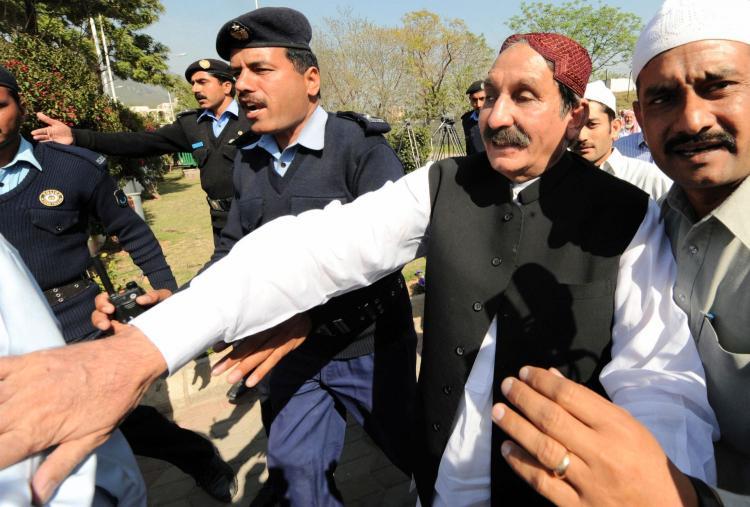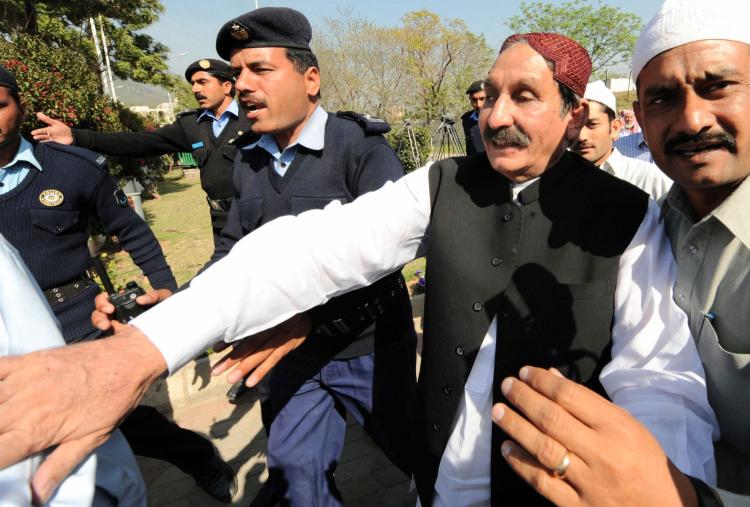ISLAMABAD, Pakistan—Early Monday morning Pakistan’s Prime Minister Yousuf Raza Gilani announced on national TV that Iftikhar Muhammad Chaudhry would be reinstated as chief justice on March 21, conceding to the demands of the popular lawyers’ movement, which has been backed by leaders of various political parties and civil society.
Representatives of the lawyers’ movement, which began with the sacking of chief justice Chaudhry in March 2007, are seeing the decision as an initial victory for democracy in Pakistan.
Since the announcement, leaders of the movement and political leaders have made a mutual decision to discontinue their four-day protest march and sit-in planned for Monday.
According to local media, Athar Minallah, lawyer and spokesman for Chaudhry, and other key leaders in the lawyers’ movement are cautiously optimistic. They will wait to examine the conditions under which Chaudhry will be reinstated.
Lawyers’ Movement Headed to Islamabad
Lawyers, members of various political parties, and activists from Lahore were due to arrive in Islamabad the morning of Gilani’s announcement. They were determined to stage a sit-in in front of the Parliament Building, until their demands for the reinstatement of sacked Supreme Court Chief Justice Iftikhar Muhammad Chaudhry was met.
In the hours before leaving Lahore, lawyers, Pakistan Muslim League-Nawaz (PML-N) party members, human rights activists, and other supporters of the movement for an independent judiciary clashed with police outside the Lahore High Court.
Police attempted to prevent marchers including Aitzaz Ahsan, lawyer and founder of the lawyers’ movement, from leaving the Lahore High Court.
After hours of attempting to control the crowds with tear gas, batons, and manhandling them, the police let the protestors proceed, including Ahsan and others being held in the high court building.
“After the police exhausted their tactics they were at a loss as to what to do,” said Anwar Kamal, president of the Lahore High Court Bar Association and one of the coordinators of the march, in a phone interview, moments prior to descending upon a bus headed for Islamabad.
Movement Has Popular Support
Though the impetus for the lawyers’ movement came from the indignation of lawyers at the firing of Chaudhry in March 2007, by then president Pervez Musharaf, the movement has been strongly backed by political parties, and various segments of Pakistani society.
According to a report on Aaj TV Online, Deputy Attorney General of Pakistan Abdul Hai Gilani resigned from his post in protest against the violence inflicted on the protesters in Lahore.
In another report, the very popular humanitarian, Abdul Sattar Edhi, founder of the Edhi Foundation, which is solely committed to the cause of helping the poor, joined the protests and voiced his full support for the goals of the lawyers’ movement and the people of Pakistan.
“The civil society not only supported the long march, but has suffered police brutality for it,” said Kamal, Lahore Bar Association president.
Earlier, Asma Jahangir, renowned international lawyer and chairperson of the Human Rights Commission of Pakistan, had spoken to media saying she would support the lawyers’ movement at any cost.
Clashes between the protesters and government were seen as inevitable, as the government had said, up until Gilani’s announcement, that protesters would not be allowed near the Parliament Building to stage their sit-in.
Yasser Iqbal in Lahore and Aysha Haq contributed to this report.







